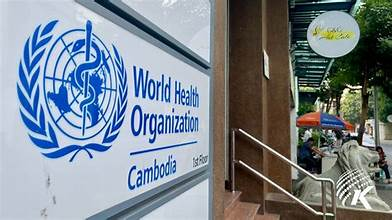In a surprising and controversial decision, the US government has officially withdrawn from the World Health Organization (WHO). This marks a significant shift in international health cooperation, as the U.S. has long been one of the largest financial contributors and strategic partners of the WHO.

The announcement, made by U.S. officials during a press briefing in Washington D.C., has stirred reactions across the world. While some see it as a necessary step to ensure national control over health decisions, many health experts and global leaders have expressed deep concern about the move’s long-term consequences.
Learn more about WHO’s mission and work here
Why the U.S. Left the WHO
Concerns Over Transparency and Response to COVID-19
One of the primary reasons cited by U.S. officials for exiting the WHO was its handling of the COVID-19 pandemic. According to the U.S. administration, the WHO failed to hold China accountable for early missteps in reporting the virus in 2019. The U.S. government claimed the organization lacked transparency, was politically influenced, and did not act quickly enough to stop the global spread of the virus.
A senior U.S. health official stated, “American taxpayers deserve accountability. We can no longer support an organization that has repeatedly failed to serve global health needs.”
Read the full timeline of WHO’s COVID-19 response
What Will Change After the Withdrawal
Funding Loss and Strategic Shifts
The U.S. has historically been the largest donor to the WHO, contributing around $400–$500 million annually. With the exit now official, the organization faces a major funding gap that may affect multiple global health programs.
Key areas that could be impacted include:
- Vaccination campaigns in developing nations
- Research on infectious diseases
- Support for pandemic preparedness
- Training for health workers in remote areas
Without U.S. support, WHO may need to scale back or find alternative sources of funding. Experts warn that this could slow down progress in controlling preventable diseases worldwide.
Explore WHO’s budget and donor data here
International Reaction and Global Concerns
World Leaders Respond to the Exit
The U.S. withdrawal from WHO has drawn mixed reactions globally. Countries like Germany, France, and Canada have expressed regret and concern. The European Union issued a statement urging the U.S. to reconsider, calling the WHO “an irreplaceable body for global health.”
Meanwhile, some U.S. allies have pledged to increase their contributions to offset the American exit. Philanthropic organizations such as the Bill & Melinda Gates Foundation have also committed additional funds to support WHO programs during this uncertain transition.
However, there is a shared fear among experts that without U.S. leadership, the WHO’s ability to coordinate global health efforts could be severely compromised.
Impact on Americans and Global Travel
Will Health Security at Home Be Affected?
While the move was framed as protecting American interests, some public health officials argue that withdrawing from the WHO could actually endanger U.S. citizens. The U.S. often relies on WHO surveillance systems to track disease outbreaks, access early warnings, and collaborate on vaccine development.

Additionally, travel restrictions or health policy misalignments could arise between the U.S. and WHO-aligned countries. This might complicate international travel, student exchange programs, and global business operations.
Understand how WHO helps coordinate international health rules
Can the U.S. Rejoin the WHO?
A Reversible Decision, But With Consequences
Although the decision is currently final, future administrations can reverse the move and rejoin the WHO. However, rebuilding trust and restoring partnerships may take time. The withdrawal also sends a strong message to other international organizations about America’s approach to global cooperation.
Health policy experts suggest that rejoining will likely come with conditions, including reforms in how the WHO operates and handles accountability.
What’s Next for Global Health Leadership?
China’s Growing Role and a Leadership Gap
With the U.S. stepping back, there is concern that China may expand its influence within the WHO. Critics argue that this could further politicize the organization and weaken its neutrality.
In the absence of U.S. leadership, countries like India, Japan, and the UK may take on a bigger role in global health strategy. However, whether they can fill the funding and expertise gap left by the U.S. remains uncertain.
Final Thoughts: A Risky Gamble or a Bold Stand?
The U.S. withdrawal from the World Health Organization is more than just a diplomatic move — it’s a turning point in how the world manages health crises together. While some hail it as a bold stand for reform and accountability, others warn it could have dangerous ripple effects across global health systems.
Only time will tell whether this decision strengthens American independence in health matters or leaves the country and the world more vulnerable in the face of future pandemics.
For more updates on global health, visit CDC Global Health and World Health Organization.
Also Read – These 2 Best Spots Are Connecticut’s Scenic, Says Yankee Magazine






